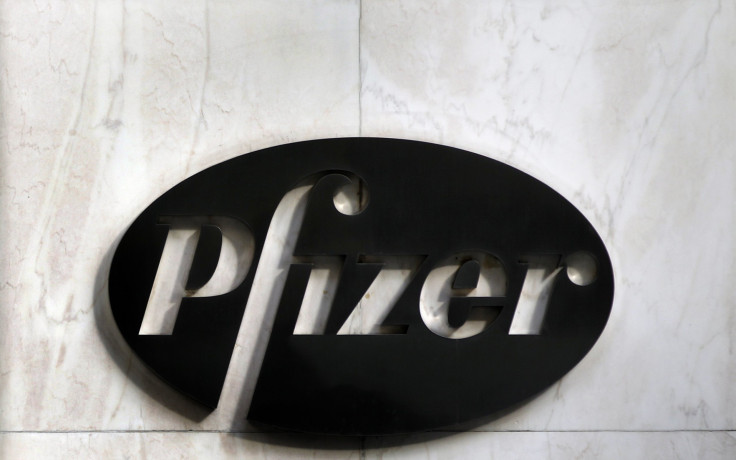Pfizer Chasing AstraZeneca In Potential $100B Deal

(Reuters) - U.S. drugmaker Pfizer Inc is working on its next move in a potential $100 billion bid battle for Britain's AstraZeneca Plc after having two bids rejected, as deal-making grips the healthcare industry.
Pfizer said on Monday it made a 58.8 billion pounds ($98.9 billion) bid approach to AstraZeneca in January and had contacted its British rival again on April 26 seeking further discussions about a takeover.
AstraZeneca shares jumped 15 percent in early trade.
The cash and shares takeover, if it happens, would be the biggest-ever foreign takeover of a British company and one of the largest-ever pharmaceuticals deals.
The renewed approach comes amid a wave of mergers and acquisitions in the sector, as the industry restructures in the face of healthcare spending cuts and cheap generic competition.
In a statement to the London stock market, Pfizer said AstraZeneca had declined to engage in discussions on both occasions and the U.S. group said it was now considering its options.
Pfizer's original proposal, made to the board of AstraZeneca on January 5, included a combination of cash and shares and would have valued AstraZeneca shares at 46.61 pounds each - a premium of around 30 percent at the time.
Pfizer said it was now considering a possible transaction in which AstraZeneca shareholders would again receive a significant premium above the value of their shares on April 17, before takeover rumors started.
Citi analyst Andrew Baum said he believed there was now a 90 percent chance that Pfizer would acquire AstraZeneca for at least around 49 pounds a share.
Shares in the British group shot up to 46.54 pounds by 0805 GMT (4.05 a.m. EDT) on Monday, after touching an all-time high of 47.14.
Given that Pfizer is likely to have to offer more this time, due to a run-up in AstraZeneca shares since January, the final value of any deal could be above $100 billion.
An AstraZeneca spokeswoman said the company had no immediate comment on the Pfizer statement, adding the company would be considering its response.
Under British takeover rules, Pfizer has until May 26 to announce a firm intention to make an offer for AstraZeneca or back away.
CANCER DRUG DRAW
Buying AstraZeneca would give Pfizer a number of promising - though still risky - experimental cancer medicines known as immunotherapies that boost the body's immune system to fight tumors. It could also generate significant cost savings for the U.S. group.
Acquiring a foreign company also makes sense for Pfizer because it has tens of billions of dollars accumulated through foreign subsidiaries, which if repatriated to the United States would be heavily taxed.
Pfizer has a long track record of making major acquisitions, with the $68 billion purchase of Wyeth in 2009 its last major deal, after earlier acquisitions of Pharmacia and Warner Lambert.
The drugmaker has more recently been divesting certain operations, while mega-mergers had fallen out of fashion in the pharmaceuticals industry following skepticism about how well some of them have worked.
But Chief Executive Ian Read said he was ready to consider large deals that made sense, adding that buying AstraZeneca would "maintain the flexibility for the potential future separation of our businesses".
The transaction would complement both Pfizer's innovative drug businesses and also its established products business - comprising older and off-patent medicines - which many analysts expect to be eventually spun off.
"We believe that a transaction would further strengthen our ability to generate strong and consistent cash flow, targeted for both investment in our business and return to shareholders, while at the same time offering an efficient operating structure and the anticipated realization of attractive synergies," Read said.
The suggested deal, which first surfaced a week ago in the Sunday Times, has triggered worries about jobs in Britain's pharmaceuticals sector, which is viewed as a key industry by the government.
AstraZeneca has already laid off thousands of scientists and other staff as it shrinks its cost base to cope with a fall in sales due to patent losses on blockbuster medicines, while Pfizer has shuttered a large research site in Sandwich, southern England.
However, Britain's finance minister George Osborne has indicated a hands-off approach to any deal, which he described on Friday as "a commercial matter between the companies".
Pfizer said the transaction, if completed, was expected to result in the combination of the two companies under a new UK-incorporated holding company, although the head office would remain in New York.
Bank of America Merrill Lynch, JP Morgan and Guggenheim Securities are advising Pfizer.
© Copyright IBTimes 2024. All rights reserved.











